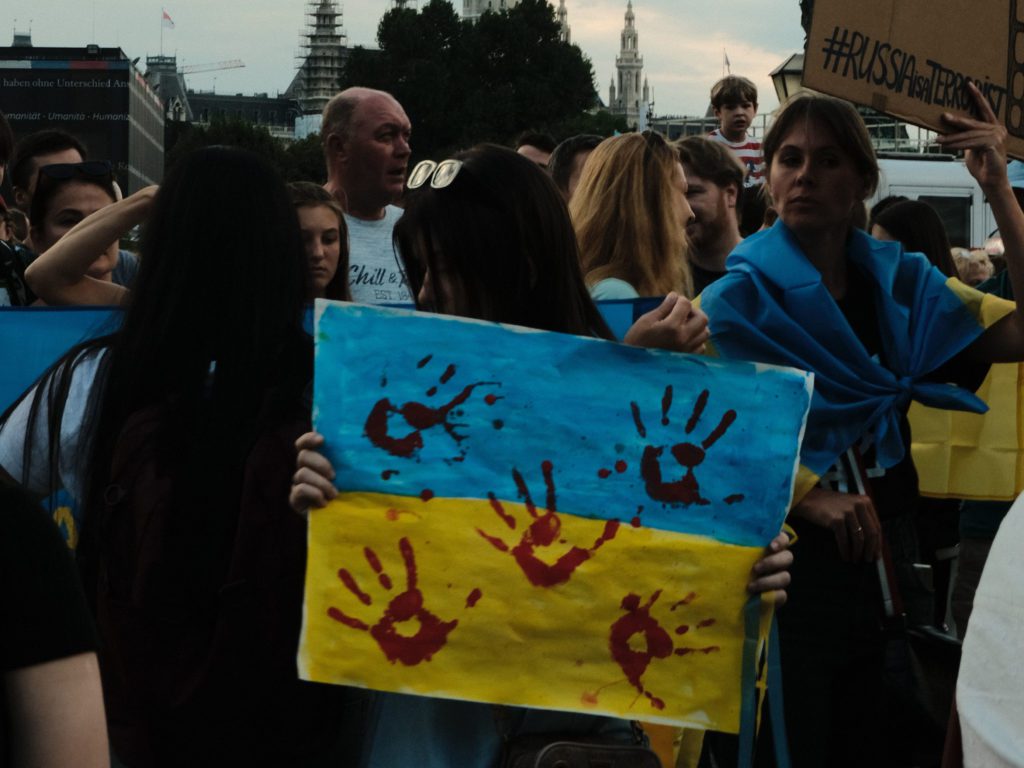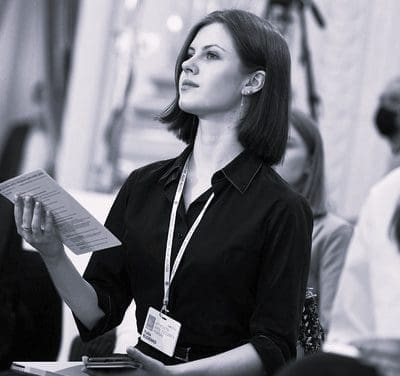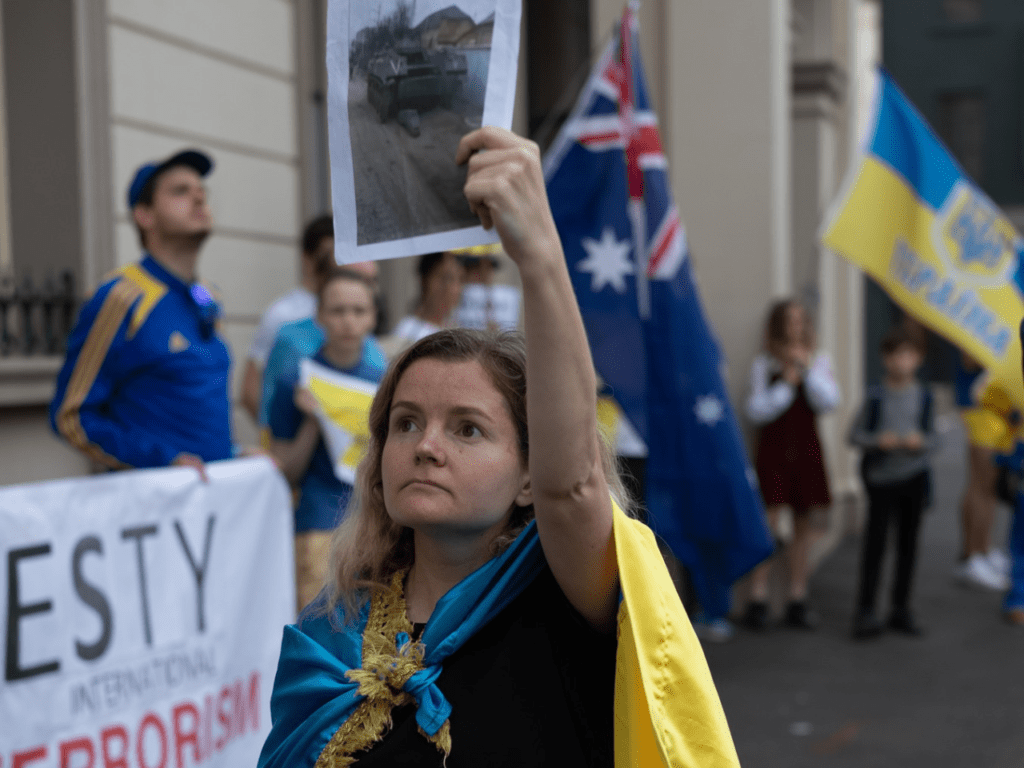Ukrainian zoologist, veterinarian recounts the Bucha massacre, horrors of war
As a zoologist and veterinarian for wild animals, I knew the savage occupiers only understood one language: that of violence. So, I treated the Russian occupiers as wild animals in order to survive. I would not look in their eyes.
- 2 years ago
December 19, 2022

Trigger Warning: this story contains descriptive content about the Bucha Massacre and themes of rape. It may be disturbing for some readers.
BUCHA, Ukraine — For me, the war started in 2014. My friends and neighbors created a volunteer hub in Bucha, where we knitted camouflage nets and collected goods for Ukrainian soldiers. Amidst that work, a massive need for aid emerged among internally displaced persons from the Donbas region.
We mobilized to help the victims settle into new locations, providing them with food, clothing, and legal aid. I strongly believed Ukraine should not be divided into Oblasts or administrative units, and my volunteerism took root.
Read more first-person stories from the Russia-Ukraine War at Orato World Media.
It pained me to see the divisions between the east and west of the country. In Russian occupied Crimea, including the Donetsk and Luhansk Oblasts, from 2014 until today, suffering continued. The people who lost their homes remained important to us. So here, in peaceful Bucha, we offered them help and the start of a new life.
Fleeing the Russian occupation during the Bucha massacre
Bucha was always a hospitable place where families and children flourished, where space existed for recreation and walks. None of us could have imagined that on February 24, 2022, the lives of the people in Bucha would change forever. We never imagined the brutal and groundless war would come to our home.
When the shelling and sound of fighter bombs began, the people tried to flee, but many died. I walked the streets of Bucha and witnessed destroyed cars – the windows of vehicles shattered and covered in blood.
The Russians killed people while they evacuated, trying to save their families. It didn’t matter that they had large posters on their cars that said, “KIDS.” When the Russian soldiers began entering peoples’ properties, they shot their dogs, robbed and raped the owners.
I decided to stay. Protecting the life and health of my children remained my most important task. When I made that decision, I could not comprehend how devastating Russia’s invasion of Bucha would be, nor how savagely and animalistically the Russian army would annihilate our people.
For one week between March 10 and 17, the Russian military agreed to allow civilians to evacuate. By the end of that week, only 3,000 of Bucha’s 37,000 residents remained. Any other opportunity to get out diminished as occupiers began killing people in their cars.
I managed to evacuate my children, parents, and some of the animals from the shelters. After that, I returned to Bucha to continue caring for the people and animals left behind. The mine explosions and shelling left many traumatized.
After evacuating her children woman stays in Bucha, witnesses the horrors of war
My choice to come back and help the wounded rather than remaining with my children is a decision I will carry for the rest of my life. I bare a deep sense of guilt. For the two months I remained in Bucha, my children went through severe episodes of trauma response. All the while, they had no idea if I was okay. Alone in another country, they had to support themselves without me being there.
During the occupation, many people left pets behind when they evacuated. Many dogs, cats, and birds ended up on the streets. Families set them free, abandoned them, or the animals ran away when the shelling started. These animals had no chance of survival without food and medical care in the frigid temperatures.
People also got sick from the cold. In the underground shelters, they had no electricity, gas, or food. I busied myself, delivering food and medicine to the people, and feeding homeless animals. As a zoologist and veterinarian for wild animals, I knew the savage occupiers only understood one language: that of violence. So, I treated the Russian occupiers as wild animals in order to survive.
I would not look in their eyes. When talking to them, I spoke very calmly, answering questions with simple words. I tried not to show any emotion or fear during their interrogations. I reacted prudently, never drawing any attention to myself.
Teaching women how to behave to avoid being raped
Even with my best effort to deflect their attention, I saw their lusty gazes. I knew they could rape me at any moment. They seemed to live by instinct, with very little intelligence driving them. I taught all the women around me to model my behavior to avoid being raped. We sniffed and rubbed our eyes and noses to make them look red. In this way, the soldiers thought we had the flu. I also advised them to wear old clothes, put dirt on their faces, not brush their teeth, and to be as unattractive as possible.
From time to time, the Russians conducted investigations. Their APCs (armored personnel carriers) stood 300 meters or 0.2 miles from my home. They knew me as a doctor who went out for food and medicine, but still demanded to search me regularly for phones or weapons. It seemed obvious I could not carry arms, but they looked anyway.

When they checked me, they touched me everywhere and filmed me during the process. I had no choice. My goal remained singular – to help my people. Eventually they lost interest and let me go about my work.
In those days, during the Bucha massacre, the atmosphere in the city changed drastically. I stopped breathing in the fresh air. Instead, I breathed in fear, despair, animal-like emotions, and desire to hide.
Haunted with nightmares of dead bodies
When the occupation finally ended in Bucha, many people came to thank me. They brought flowers, sweets, and socks. I felt so grateful for their outpouring of love, realizing we got through it together. We survived and never gave up.
Today, I am safely located in Australia. I do not want to let Russia break us, so I go out for demonstrations, hoping Ukraine wins. We feel grateful for the weapons sent to our country, and for the money my father receives to buy art kits for children.
Despite my hope, I cannot sleep in peace. In my dreams, I see my neighbors being killed in the streets. Images haunt me of leaving my apartment and stepping over the body of our postman, who they shot. I see my friend with a bullet wound in her forehead, and I bury her. It seems impossible to live my life. Food has no taste anymore. I lost myself in the occupation.
The Russian war in Ukraine took everything from me. It stripped away my dreams for my children and separated me from family. The experience deprived me of my three best friends and my home. I am left with nothing but the horror.
While I still hold close my love for Ukraine and I see our strength, today I believe nothing ranks above family in importance. Yet, I miss my home, where I grew up. We must preserve Ukrainian values and protect the culture, spirit, and rights Russia tries to steal from us. We must never be slaves.
Ukraine will never give in
Every morning I wake up with a single thought: Ukraine will win; and I go to bed hoping the person who killed my best friend dies in pain. Through my work now, I can help bring this victory closer so we can celebrate together one day.
This is the 21st Century and genocide is taking place right in the center of Europe. The Russians murder our teachers, writers, and doctors. Our men die to defend our freedom, while Russian soldiers rape and murder our children. They ruin our landmarks and historical heritage.
How can anyone stand aside? Countries in Europe and around the world should maximize their weapon supplies to Ukraine, tighten the sanctions, isolate Russia, and call it what it is – a terrorist state. The Russian soldiers who devastated Bucha did so because they have enjoyed impunity for hundreds of years. They always murdered and raped Ukrainians and never faced punishment. This story is decades old.
Throughout Ukrainian-Russian history, our leaders and elite have always been suppressed – first by the Russian Empire, then the USSR, and today by the Kremlin. All of that impunity led to this – another genocide of the Ukrainian people. An end must be put to this terrorism and modern-day annihilation of my people.






























































































































































































































